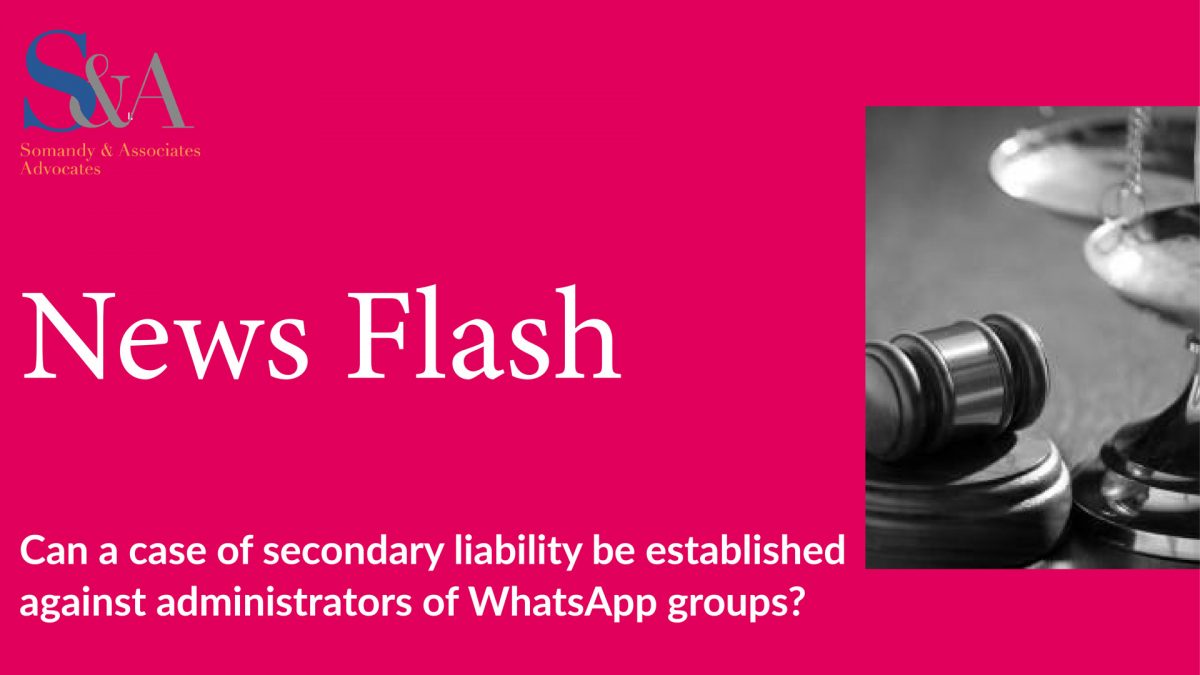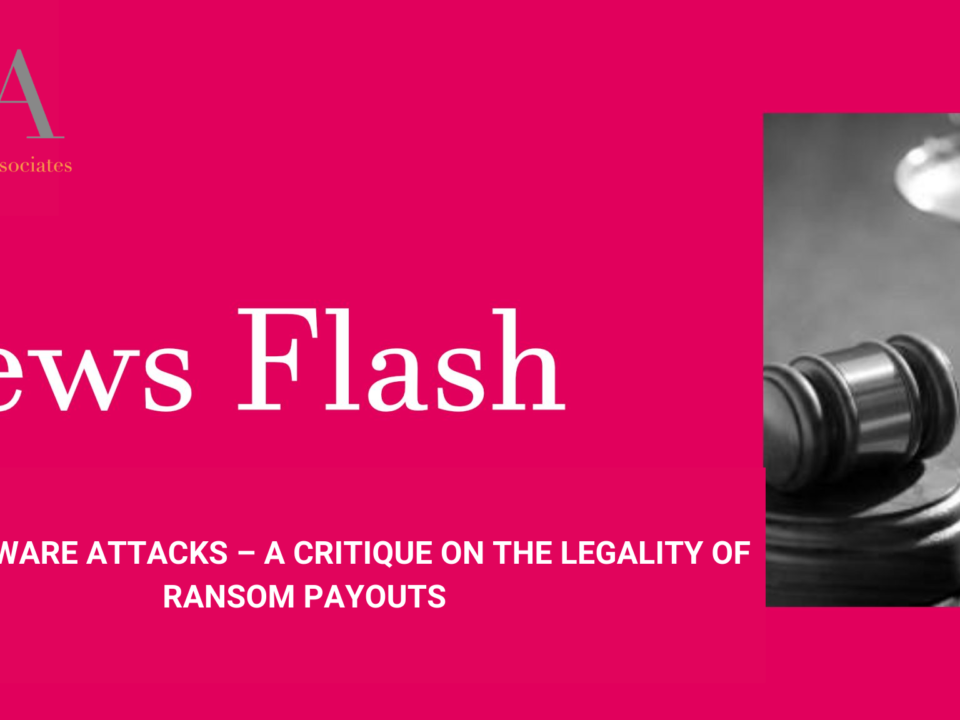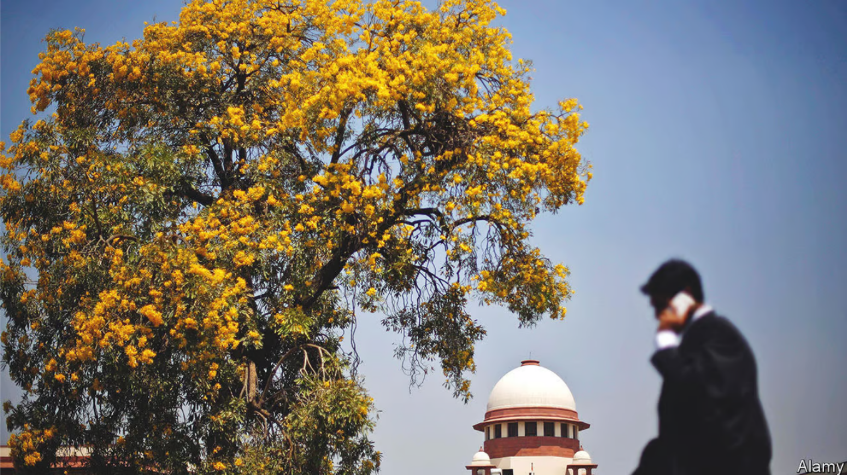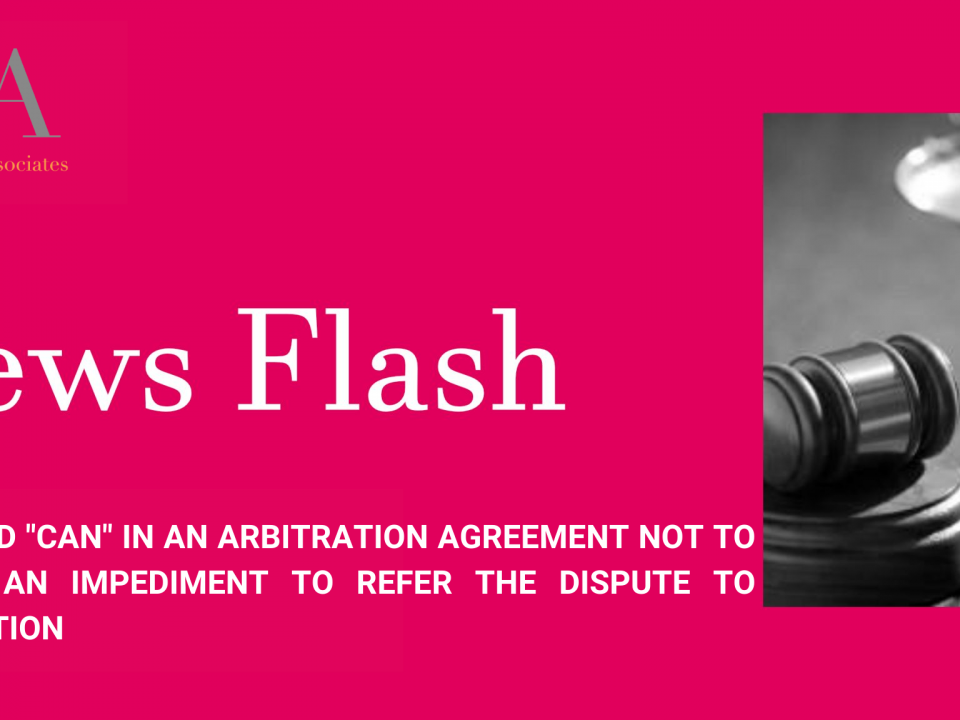
In the case Kishor v. State of Maharashtra and Another, the Bombay High Court vide an order dated 01.03.2021 examined the role of a WhatsApp group admin in criminal offences perpetrated by another member of the group.
The facts of the matter in brief are that the applicant was an administrator of a WhatsApp group and an FIR came to be registered against him on the ground that he failed to initiate action against the concerned individual (member of the group) who used ‘filthy language’ against another member of the said group. Therefore, an application under section 482 of the Code of Criminal Procedure (“Cr.P.C”) was filed challenging the charge-sheet that accused the applicant of offences.
The crux of the issue involved was whether an administrator of a WhatsApp group can be held vicariously liable for objectionable posts of its members? Additionally, the Court had to determine whether an admin of the group can be considered as an intermediary under the I.T Act?
The Court examined the ingredients of each of the alleged offences along with an in-depth functioning of WhatsApp messaging service. Section 354-A (1)(iv) of the IPC requires that a man should himself make sexually coloured remarks. The language of the said section does not introduce vicarious liability, nor did the legislature intend to introduce vicarious liability by necessary implication. The Court concluded that even if the allegations in the FIR and the material brought on record are considered as true, the ingredients of the offence under section 354-A(1)(iv) of the Indian Penal Code were not fulfilled.
Whilst dealing with the provisions of section 107 of IPC, reliance was placed upon a decision of the Apex Court in the case of Kishori Lal v. State of M.P wherein a person was held guilty of abetment if – (l) he instigates any person to do that thing; or (2) engages with one or more other persons in any conspiracy for the doing of that thing; or (3) intentionally aids, by act or illegal omission, the doing of that thing. In the instant case, the Court stated that a group administrator cannot be held vicariously liable for an act of a member of the group, who posts objectionable content, unless it is shown that there was common intention or a pre-arranged plan of acting in concert pursuant to such plan by such member of the group and the administrator. Since an administrator does not have powers to regulate, moderate or censor the content before it is posted on the group, therefore common intention cannot be established in the case of a WhatsApp service user merely acting as a group administrator. When a person creates a WhatsApp group, he cannot be expected to presume or to have advance knowledge of the criminal acts of the member of the group.
Further, Section 509 of the IPC criminalizes word, gesture, or act ‘intended’ to insult the modesty of a woman. However, in the present matter, the said offence could not be made out against the applicant since the grievance was that accused No.1 had used filthy language. On perusal of the same, the Court concluded that the essential ingredients of section 107 and 509 that the applicant had ‘instigated’ or ‘intentionally aided’ by his act or illegal omission to the accused No.1 to make sexually coloured remarks were conspicuously absent.
Section 67 of the I.T Act provides for punishment to a person whoever transmits or publishes or causes to be published or transmitted, any material which is obscene in electronic form. At this stage, the definition of an ‘intermediary’ as enumerated under Section 2(w) of the I.T. Act was brought to light. As per the said Section an ‘intermediary’ refers to any person who on behalf of other person receives, stores or transmits that record or provides any service with respect to that record. In the backdrop of the definition, the Court was satisfied that the applicant had neither published nor transmitted or caused to be published or transmitted any electronic form or any material which was obscene in nature.
In light of the above, the Court observed that once the group is created, the functioning of the administrator and that of the members is at par with each other, except the power of adding or deleting members to the group. The upshot of the decision was that an administrator of a WhatsApp group cannot be held vicariously liable for objectionable content posted by a member. But, if such a member posts any content, which is actionable under law, he can be held liable under the relevant provisions of law.



